

Tao Te Ching

Qianlong Emperor’s bamboo copy of Art of War
Strategy
Although the phrase ‘strike while the iron’s hot’ only goes back as far as an 18th century early marriage strategy, the sentiment goes back at least as far at 6th century BCE Sun Tzu: “Overwhelming speed is of utmost importance, never miss opportunities, appear like thunder with startling suddenness to take advantage of your enemy’s unreadiness by taking unexpected routes and attacking unguarded places.” Sun Tzu focused on vital political strategies but his principles can apply equally to business, livelihood, education, the battle of the sexes, and to the survival of our species itself. Strategy epitomizes the kind of reasoning that expands human consciousness beyond that of unthinking animals. From an anonymous source: “If you fail to plan, you plan to fail.”
Quotes (92)

“Tactics for extricating oneself from adverse battlefield situations emphasize speed, maneuverability, unified action, decisive commitment, the employment of misdirection, the establishment of ambushes, and the appropriate use of different types of forces.”

“No shame in running,fleeing disaster, even in pitch darkness. Better to flee from death than feel its grip.”
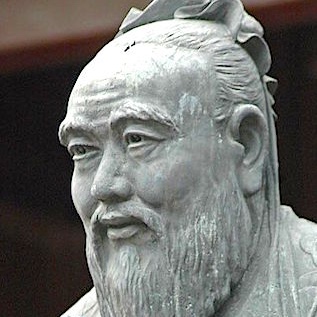
“When young, beware of the desire to fight. When in manhood, beware of sex. When one has grown old, beware of the desire for possessions.”

“Trust in self interest, spread one’s awesomeness over the enemy... Victory can be known. It cannot be made… And so the superior military cuts down strategy. Its inferior cuts down alliances. Its inferior cuts down the military. The worst attacks walled cities.”

“In peace prepare for war, in war prepare for peace. It is a matter of life and death, a road either to safety or to ruin. Under no circumstances can it be neglected.”

“honoring the worthy is the foundation of government... sage kings of ancient times showed no special consideration for their own kin, no partiality for the eminent and rich, no favoritism for the good-looking and attractive.”
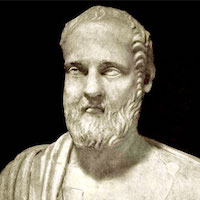
“It is more important to know where you are going than to get there quickly. Do not mistake activity for achievement.”

“the most important part of a task is the beginning, for that is the time when character is formed, when impressions readily taken.”

“The Master achieves success, yet he never does a thing… People don’t see him as a leader since he lets them find their own way”

“Test a servant while in the discharge of his duty, a relative difficulty, a friend in adversity, and a wife is misfortune.”

“If you climb to a height and beckon, it’s not that your arm grows longer, but it's seen from farther away. If you yell downwind it’s not that the sound gets swifter, but it is heard more clearly.”
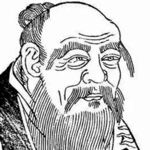
“This sets out the way of military strategy. Lao Tzu was disgusted with the use of military force at the time. Thus he took up himself to explain its principles.”
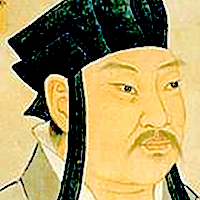
“One may rely on strategy and deception to impress but these can hardly compare with an impression made without these.”

“Where would I find enough leather to cover the entire surface of the earth? But with leather soles beneath my feet, it’s as if the whole world has been covered.”

“Plan for this world as if you expect to live forever; but plan for the hereafter as if you expect to die tomorrow.”

“Final decisions should be made face to face... with verbal consensus, mental concurrence, and equality of intention.”
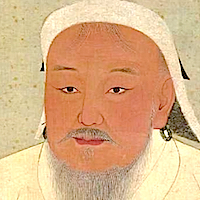
“It is necessary to accept hard and inconvenient advice, to punish bad people with merciless law, to protect the numerous subjects with kindness, to strive after a good name that is honored everywhere.”

“For us there can be no attachment to a particular manner of behavior in this life, nor has this ever been right, however successful we may have been.”

“You should never play to win but so as not to lose. Think what moves will be quickest beaten, avoid making them, and make whatever move will take most time to beat. In learning any accomplishment, in controlling one's own conduct, and in governing a nation, the same rule applies.”

“Never increase, beyond what is necessary, the number of entities required to explain anything.”

“Injuries should be done all at one time—being tasted less, they offend less. Benefits should be given little by little—so that the flavor of them may last longer.”

“Act in a crisis with calm, and act during a calm by thinking ahead of a crisis.”

“Study people as deeply as you study books and you won't make painful mistakes about character. (chapter 157)”

“While living, be a dead man, be thoroughly dead – whatever you do, then, will always be good.”

“Do not seek to follow in the footsteps of the men of old; seek what they sought.”

“The Emperor Constantine was a villain; a patricide who had smothered his wife in a bath, cut his son's throat, assassinated his father-in-law, his brother-in-law, and his nephew. A man puffed up with pride and immersed in pleasure, a detestable tyrant like his children—but he was a man of sense. He would not have obtained the Empire and subdued all his rivals had he not reasoned justly.”
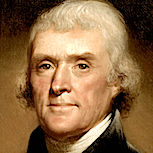
“learn to looks forward, before you take a step... Everything in this world is a matter of calculation. Advance then with caution, the balance in your hand.”

“Now he found out a new thing - namely, that to promise not to do a thing is the surest way in the world to make a body want to go and do that very thing.”

“they know that they will sooner gain their end by appealing to men's pockets, in which they have generally something of their own; than to their heads which contain for the most part little but borrowed or stolen property”

“'I don't keer w'at you do wid me, Brer Fox,' sezee, 'so you don't fling me in dat brier-patch. Roas' me, Brer Fox' sezee, 'but don't fling me in dat brier-patch,' sezee.”

“Dey stretch out dey neck en step high wid dey foot, yit dey aint git too close ter Mr. Wildcat.”
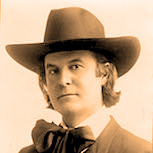
“It does not take much strength to do things, but it requires a great deal of strength to decide what to do.”

“We suffer not only the evils that actually befall us, but all those what our intelligence tells us we have reason to fear... forethought averts physical disaster at the cost of worry, and general lack of joy.”
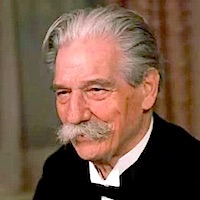
“Success is not the key to happiness. Happiness is the key to success. If you love what you are doing, you will be successful.”

“When I encounter a sunrise, a painting, a woman, or an idea that makes my heart bound like a young calf, then I know that I am standing in front of happiness... Throughout my life this has served me as an infallible sign.”

“It is quite possible to admire a hundred women or men while remaining resolutely faithful to one. In that way we may get the best of both—the transient ardor of sexual emotion and the quiet content of lasting love.”

“How to select our spectacles through which to look at life is all a matter of personal choice... It is all a frame of mind, this enjoyment of living.. Things don't give us anything except what we bring to the enjoyment of them.”

“We learn to desist from concentrating on what might be good for us in the short run; because, when we study underlying trends, we often find that what is good for us in the short run may be far from good in the long run.”

“It is a laborious madness and an impoverishing one, the madness of composing vast books, setting out in five hundred pages an idea that can be perfectly related orally in five minutes. The better way to go about it is to pretend that those books already exist, and offer a summary, a commentary on them... I have chosen to write notes on imaginary books.”

“Live as if you were living already for the second time and as if you had acted the first time as wrongly as you are about to act now.”
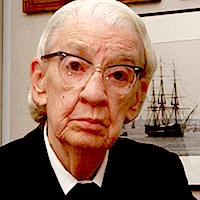
“If it's a good idea, go ahead and do it. It's always easier to apologize for something you've already done than to get approval for it in advance.”

“the I Ching teaches us how nature's currents flow and makes it easier for us to fit into them—their main function helping us see into nature's ways with a view to bending ourselves to suit those ways instead of trying to conquer nature and win power over it.. almost every kua [trigram or hexagram] tells us one of 4 things: When a situation is favorable, we go forward swiftly and joyfully. When it is not favorable, we know how to go slowly cautiously, or else to halt, or go back.”

“It's funny. All you have to do is say something nobody understands and they'll do practically anything you want them to.”

“I believe The Art of War shows quite clearly how to take the initiative and combat the enemy—any enemy… Sun Tzu’s truths can equally show the way to victory in all kinds of ordinary business conflicts, boardroom battles, and in the day to day fight for survival we all endure—even in the battle of the sexes! It has been a constant companion to me… I would make it obligatory study… I believe, very much, that Sun Tzu’s knowledge is vital to our survival.”

“Sometimes it's wiser to give a quarry extra line -- that's how to catch a fish, neh?”

“We are looking ahead, as is one of the first mandates given us as chiefs, to make sure and to make every decision that we make relate to the welfare and well-being of the seventh generation to come. ... What about the seventh generation? Where are you taking them? What will they have?”

“How can we ‘plan ahead’ when the the speed of change makes it almost completely impossible to have any clear idea about what the future will look like? The only reliable strategy may consist in developing mindful awareness, the ability to think for ourselves, and ripen innate wisdom.”
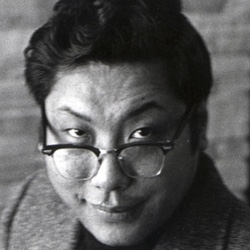
“The problems arise because of too many presented ideas about how to save ourselves rather than about why we should save ourselves or what the problem actually is… the how comes spontaneously.”

“A man is a success if he gets up in the morning and gets to bed at night, and in between he does what he wants to do.”

“The early Mongol rulers clearly recognized that knowledge constituted their most potent weapon and controlling the flow of information served as their organizing principle.”
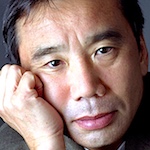
“People have to come up with a clever strategy if they want what they know and what they don't know to live together in peace. And that strategy is thinking. We have to find a secure anchor. Otherwise, no mistake about it, we're on an awful collision course.”

“Any strategy that involves crossing a valley—accepting short-term losses to reach a higher hill in the distance—will soon be brought to a halt by the demands of a system that celebrates short-term gains and tolerates stagnation, but condemns anything else as failure. In short, a world where big stuff can never get done.”

“the real question facing us is not, 'What do we want to become?', but 'What do we want to want?' Those who are not spooked by this question probably haven't given it enough thought.”

“Strategy has to meet the demands of simple logic, but it should never become a slave to it.”


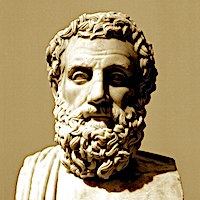
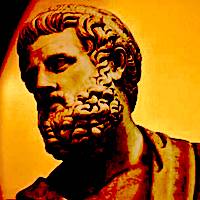


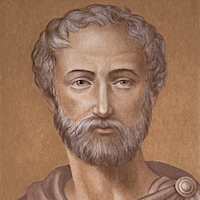






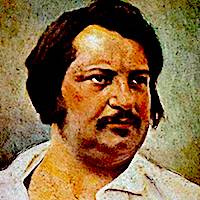

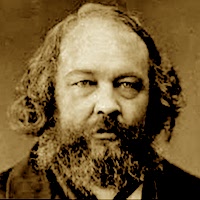
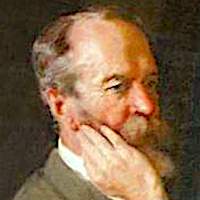
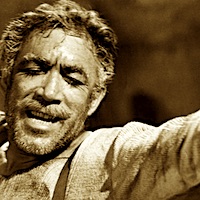














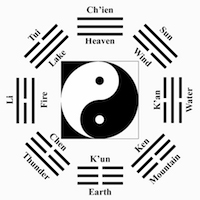

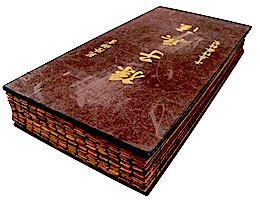

Comments (0)